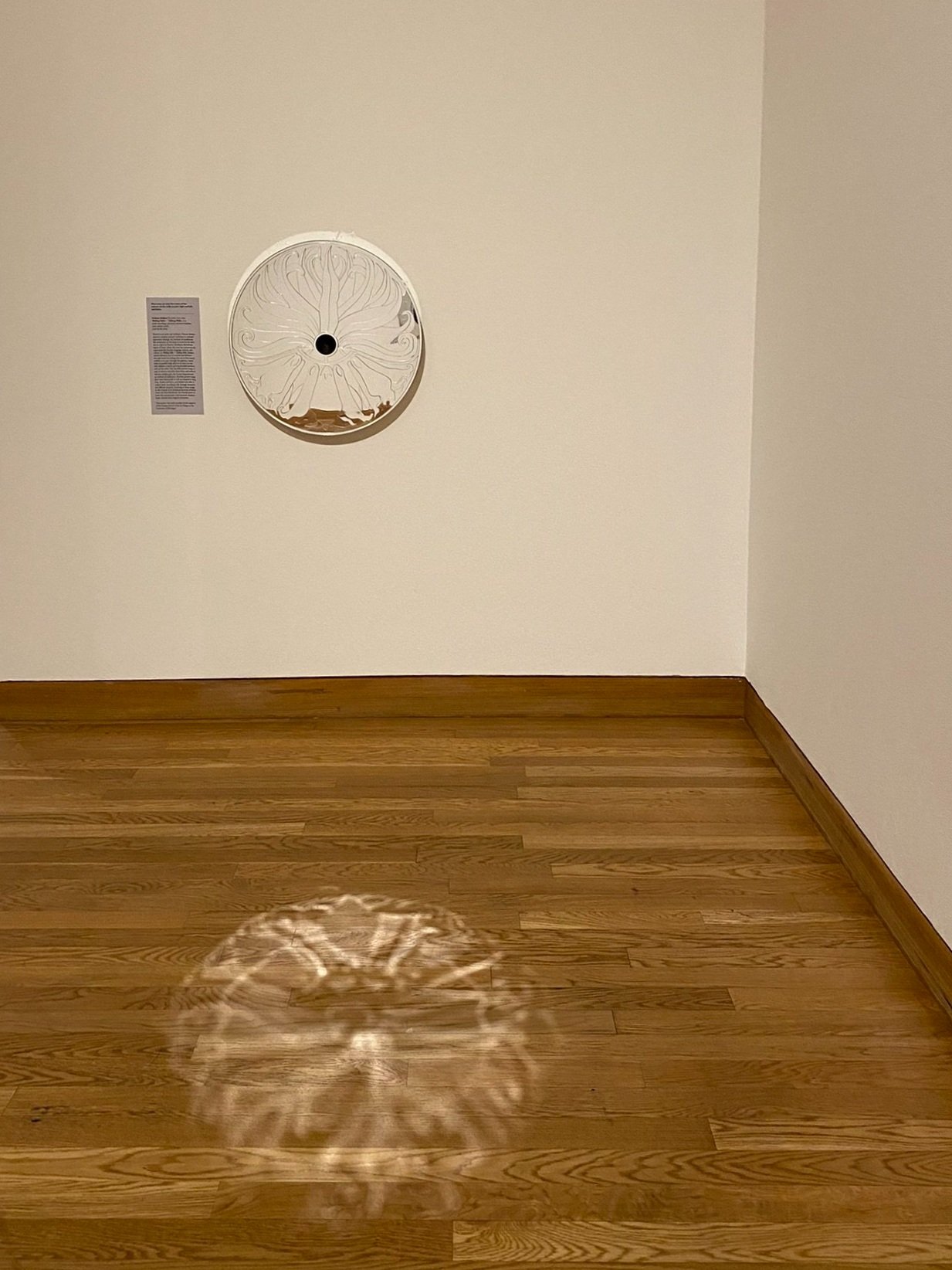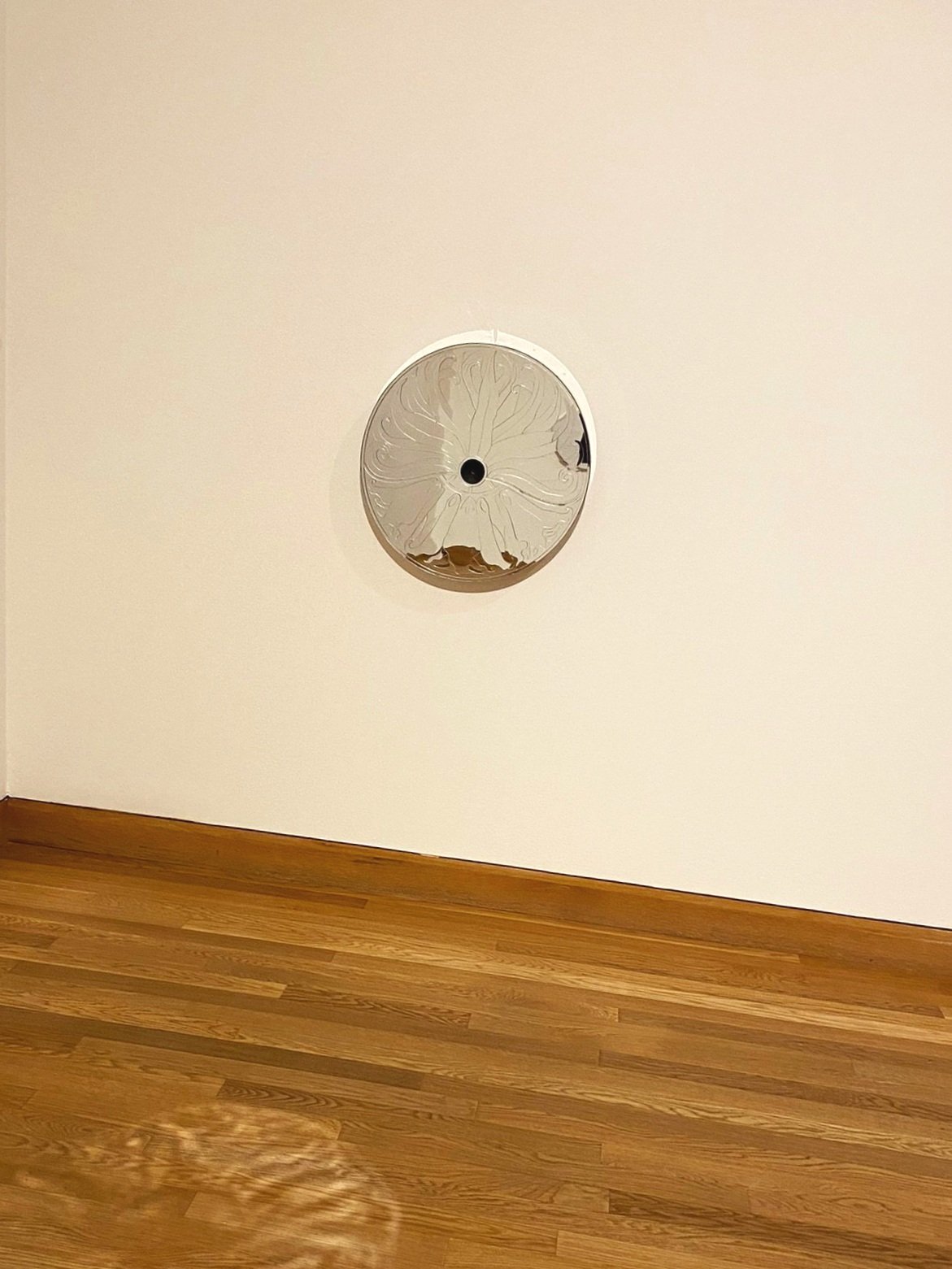“Walling Talks – Talking Walls”
2024, 2 part Sound Installation each part 24” diameter x 5”, Audio recordings, plywood, mirrored stainless steel, mirror acrylic.
“Walling Talks, Talking Walls” is a symphony of struggle echoing through the corridors of time. Nestled within two opposing walls are orifices, small yet profound, the portals through which the soul of Kurdistan whispers.
It is a two-part sound-installation embedded in two opposing walls in a way that suggests the emerging voices are coming from behind the exhibition space's walls. Each wall has a small hole indicating where the sound devices are embedded. Each puncture marks the center of a circular mirror-work mounted on the walls that embed the sound devices.
On each wall, a mirror work blossoms, reflecting the visage of the Şiler/شلێر – the Crown Imperial, an emblem of endurance. In our symbolism, the Şiler, blooming from the soil drenched in the tears and blood of the Kurdish people, stands as a silent testament to the multiple genocides that befallen this nation.These mirrors, shaped like Şiler, capture not only light but the essence of a struggle deeply rooted in the Kurdish identity. Their centers, dark as night, taper down to a singular point of red puncture into the wall behind them, aligned perfectly with the auditory soul of the installation. The artwork points to the history of persecution and censorship against the Kurds, stripping us from the right to learn our national language. The work contemplates on the right to exist and aspire in our national tongue the same as any other free nation around the world.
One wall, tender and mournful, carries the lullabies of Kurdish mothers – lullabies not just of sleep, but of resistance and remembrance. These melodies, collected from the heartlands of Kurdistan, are more than mere songs; they are the narratives of a people, recounting tales of atrocities, dreams, and undying hope. Sung over cradles and graves alike, they echo the unyielding spirit of mothers who cradle their history and grief in the same breath. I have been collecting them from different parts of Kurdistan, asking mothers to sing their favorite lullaby and send them to me.
These lullabies are customarily used as a form of resistance initiated by moms, which mostly start with “Why don’t you sleep, my child,” and then unpack the reasons for the sleeplessness of their children. Mothers sing these lullabies to children before sleep. They also sing them over the graves of their children and loved ones who are killed by the states that are occupying our lands.
In stark contrast, the opposing wall resonates with the forbidden songs of Kurdistan, a catalog of resistance from the 1980s to the present. These melodies, once silenced by the iron hands of Iraq, Iran, Turkey, and Syria, rise again in defiance. Each note, each word, is a fragment of Kurdish identity, fighting against the erasure of language, culture, and the right to exist. Banned yet unbroken, these songs are a testament to the Kurdish aspiration for self-determination and freedom.






